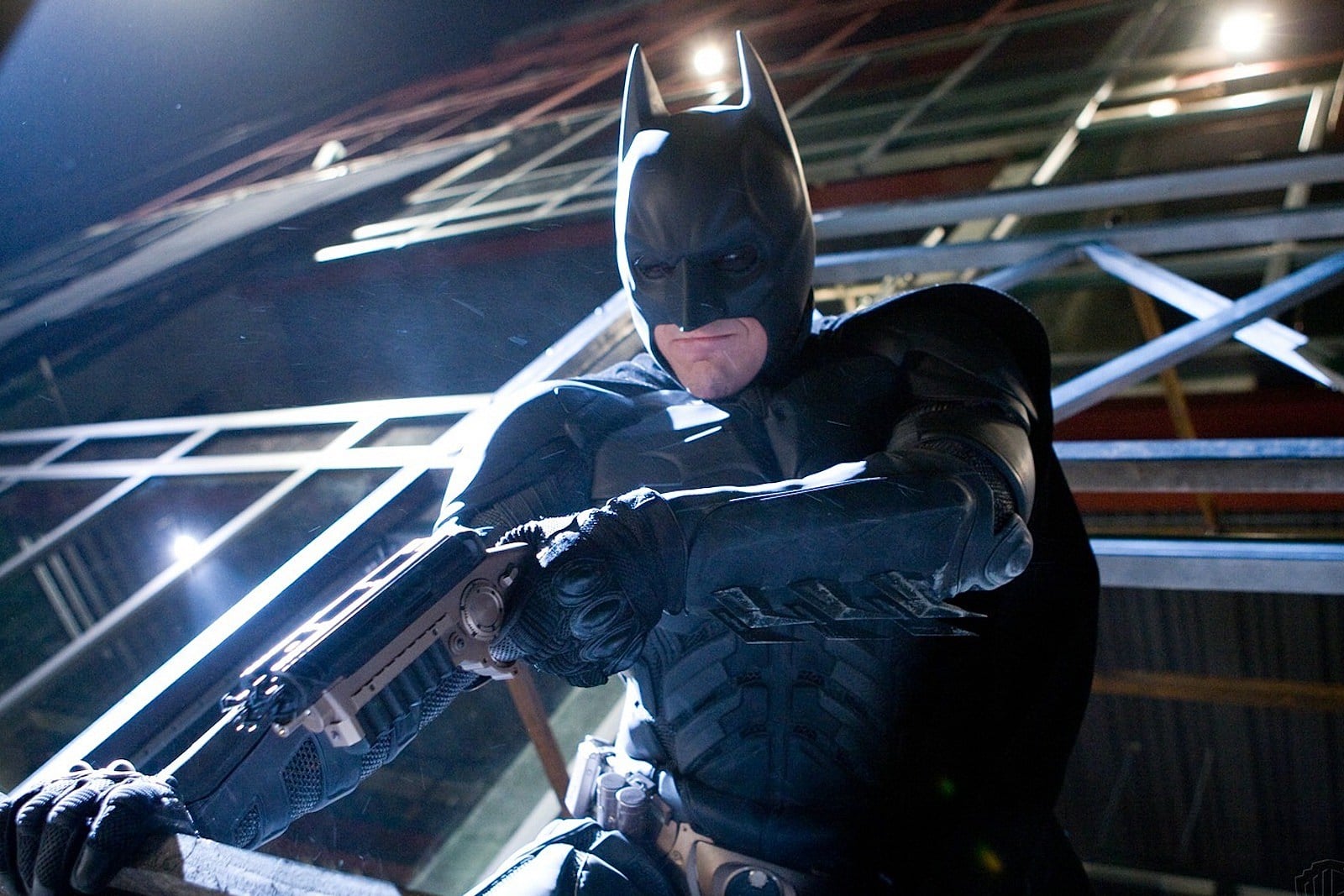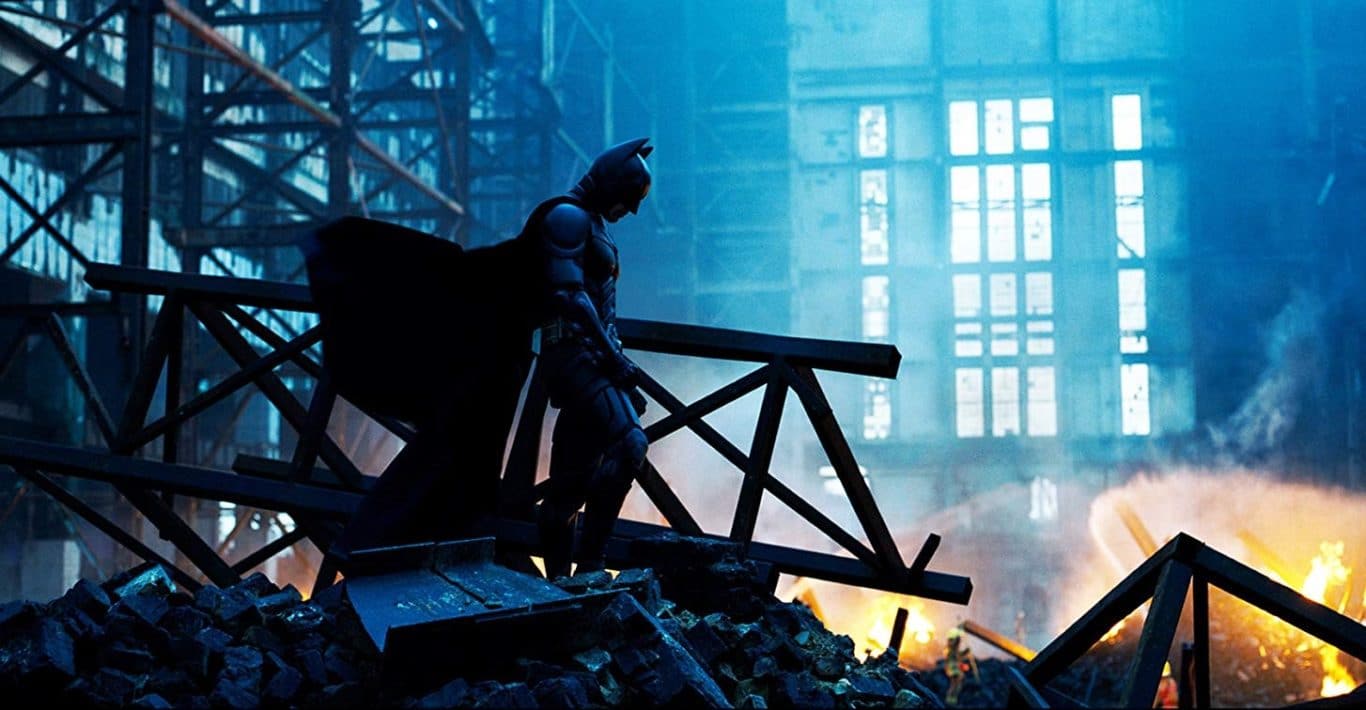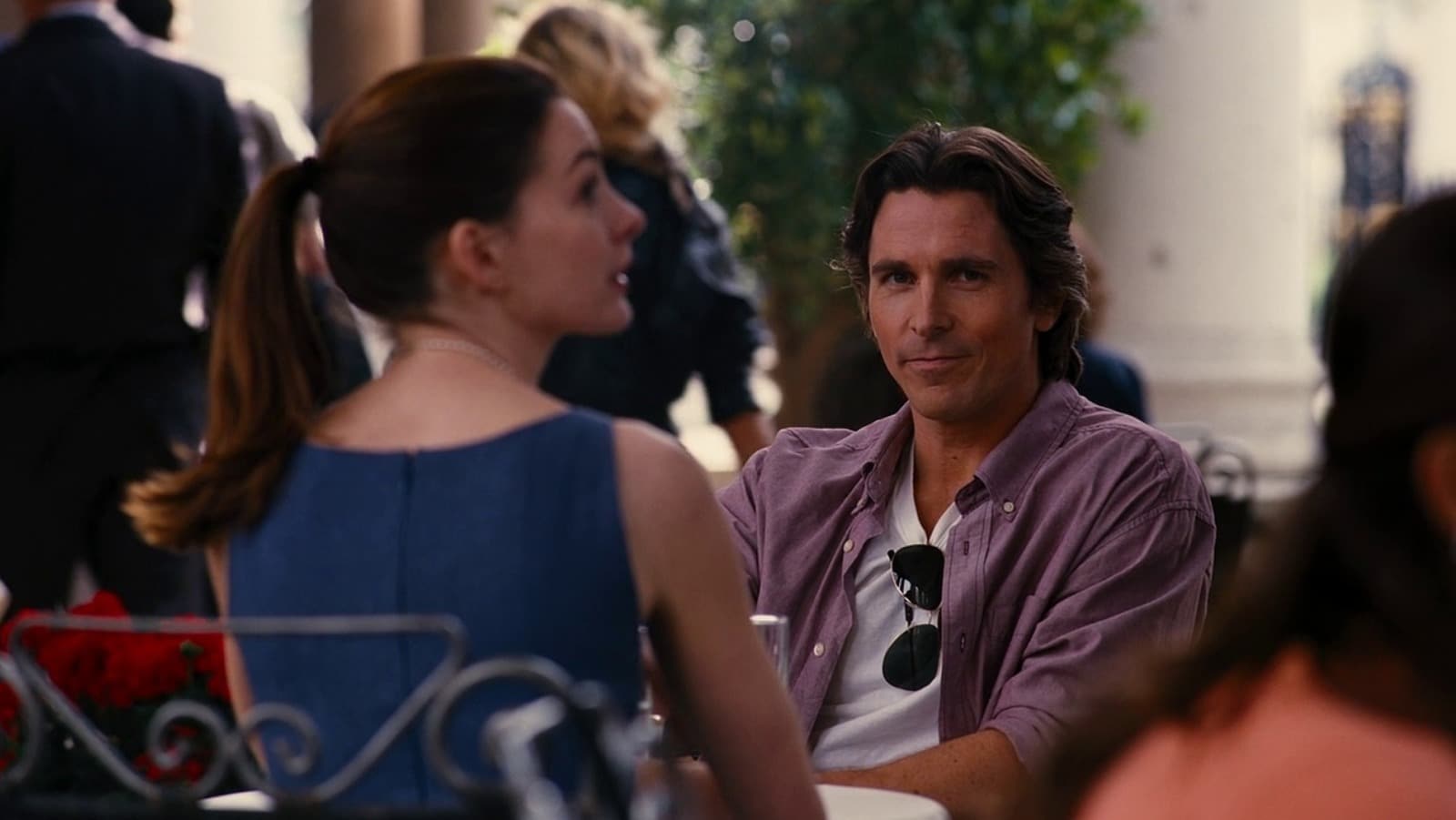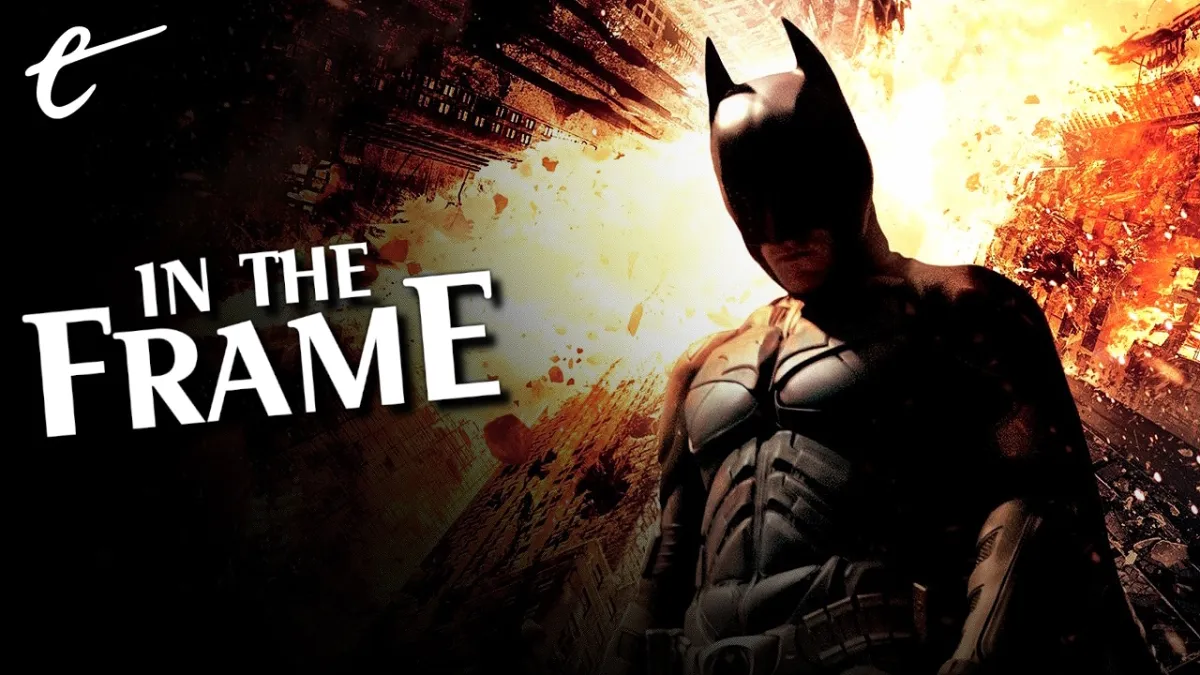Christian Bale’s press tour for Thor: Love and Thunder has been a delight. It has produced a variety of memetic material, from Bale’s very considered attempt to explain why audiences have responded to Thor (Chris Hemsworth) to the actor’s response to a question about entering the Marvel Cinematic Universe by asserting, “I haven’t entered shit.” However, it has also stoked debate around the possibility of Christian Bale returning to the role of Batman.
Of course, it makes sense that Bale would be asked about his interest in reprising his role as the Caped Crusader. The actor starred in a trilogy of financially successful and critically acclaimed blockbusters that redefined what was possible with cinematic superheroes. The films set a high bar for the genre. The timing also lines up. Batman Begins was released over 17 years ago, which means that Christian Bale’s take on the Caped Crusader is primed for nostalgic exploitation.
More than that, modern cinema is saturated with older actors reprising iconic roles. Tobey Maguire and Andrew Garfield both returned for Spider-Man: No Way Home. Patrick Stewart cashed in on two separate beloved characters in Star Trek: Picard and Doctor Strange in the Multiverse of Madness. Given that both Ben Affleck and Michael Keaton are appearing in The Flash, it is odd that it has taken this long for Bale to seriously consider returning to the cowl.
Bale answered diplomatically. He stated that he had a “pact” with director Christopher Nolan to make three films and walk away. However, he added, “In my mind, it would be something if Chris Nolan ever said to himself, ‘You know what(?) I’ve got another story to tell.’ And if he wished to tell that story with me, I’d be in.” It’s a perfectly reasonable response to that question, one that avoids rigid absolutes while establishing clear boundaries.

It is consistent with how Bale has historically responded to questions about a hypothetical fourth film, even down to the wording. Doing press for The Dark Knight Rises, Bale was keen to stress that this was intended as the final film, while conceding, “But… if Chris came to me with a script and said, ‘You know what? There is another story(,)’ then I would love the challenge of making a fourth one work.” A year later, Bale stated that The Dark Knight Rises was “where it should end.”
Bale and Nolan have demonstrated a remarkable creative integrity when it comes to their version of Batman, particularly at a time when pop culture is so obsessed with recycling and replaying what came before. While doing press for Ford v Ferrari, Bale conceded that Warner Bros. had approached the two about the possibility of making a fourth film in the series, but both Bale and Nolan had declined. It would be easy money for both of them, so their restraint is admirable.
It is comparable to Steven Spielberg refusing to greenlight a sequel to E.T. the Extra-Terrestrial, understanding that “sequels can be very dangerous because they compromise your truth as an artist.” Both director Robert Zemeckis and writer Bob Gale have steadfastly refused the temptation to allow a fourth Back to the Future film, with Zemeckis hoping that his estate would continue to block it after he dies and Gale suggesting that it would be like “selling your kids into prostitution.”
There is some appeal to the idea of a fourth Batman movie from Nolan and Bale. After all, their trilogy ranks as one of the great achievements of American popular cinema. Tom Shone likened it to the Godfather trilogy, a “shadow portrait” of the American soul on celluloid. Roger Ebert argued The Dark Knight redefined “the possibilities of the ‘comic-book movie’” and The Dark Knight Rises tested “the weight a superhero movie can bear.” It’s fun to imagine what they might do for an encore.

However, part of what makes those three films so effective and so successful is that they have an ending. The three movies build to a narrative and thematic conclusion, with Nolan offering a bold thesis statement on the comic book character, and then they wrap up. The three films feel complete. They do not need a coda or an epilogue; they do not demand an extension or an extrapolation.
The Dark Knight Rises offers a clear ending for Bruce Wayne, allowing the character the chance for a happy life that he could never enjoy in a monthly comic book. The mantle of Batman is passed on, allowing it to become larger than any one person and effectively transcending Wayne’s limitations. No comic book Batman story could end like this, because — as writer Grant Morrison (perhaps grimly) conceded at the end of their epic seven-year Batman run that almost perfectly overlapped with Nolan’s trilogy — “it never ends.”
Any writer will tell you that endings are difficult. They are also increasingly rare in popular culture, as franchising has accelerated. James Earl Jones is still playing Darth Vader at the age of 91, with some computer-synthesized assistance. Harrison Ford will be 80 years old when the next Indiana Jones film releases. Advances in computer-generated imagery mean characters can hang around even after their actors have left the mortal coil. Audiences want more, and who are studios to say no, even if it undermines these characters?
James Mangold’s Logan is one of the best superhero films of the past decade, a loving swan song to Hugh Jackman’s extended run as Wolverine. The movie is touching and emotional. It’s hard to shake the feeling that it would be somewhat diminished if Ryan Reynolds manages to convince Jackman to finally appear in Deadpool 3. Patrick Stewart gets to say goodbye to the character of Charles Xavier in Logan, but the power of that farewell is undercut by the actor’s return in Multiverse of Madness.

Of course, one response to this argument would be to point out that many of these modern franchises are rooted in monthly superhero comic books, a genre that exists in a perpetual second act with no clear ending in sight. Comics characters like Superman and Batman have adventured for decades without any need for endings. Indeed, even comic book stories that posit possible endings for these heroes — like The Dark Knight Returns — can end up spawning sequels upon sequels.
That is true, but feature films are a different medium. They are constrained by different realities, from a more costly and involved production cycle, to larger gaps between releases, to the basic reality that actors and other creative talent age in ways that cartoon drawings do not. Even television shows, which are perhaps closer to comic books in terms of featuring a fixed talent releasing episodic installments at a regular schedule over an extended period, still face those production realities.
Indeed, it is arguable that Marvel Studios is facing this problem at the moment. The Marvel Cinematic Universe represents a clear attempt to build a comic book universe through film and television. It is admirable, but it is still much closer to television than to comics. One of the big challenges facing the shared universe in the wake of Avengers: Endgame has been the challenge of having to provide endings for individual characters while still maintaining a sense of forward momentum for the larger universe.
The results have not been ideal. Endgame bid farewell to actors Chris Evans as Steve Rogers, Robert Downey Jr. as Tony Stark, and Scarlett Johansson as Natasha Romanoff. The story is structured in such a way that each actor gets a big moment that is intended to close the book on their character, wrapping up their larger arc in a satisfying manner. However, the demands of the shared universe mean that those characters are too valuable (and too popular) to be allowed a definitive ending.

Scarlett Johansson reprised her role as Natasha Romanoff in the prequel Black Widow. The animated series What If…? introduced alternate versions of the characters played by sound-alike actors like Josh Keaton, Mick Wingert, and Lake Bell. The Falcon and the Winter Soldier opens with recycled audio from Chris Evans’ last appearance in Endgame, and the character hangs so heavily over the show that fans are unsure whether Steve Rogers is meant to be dead or alive within the shared universe.
The result of all this is something that is unsatisfying on two levels. First of all, the casual recycling of these characters — whether through existing material or in recasting — means that their endings lack any real weight or gravity. Second of all, it means that many of the newer characters foregrounded in the wake of these departures are constantly in the shadow of those that came before, destined to be compared to and validated in relation to characters whose stories should be finished at this point.
Critic Alison Herman has coined the phrase “form confusion” to describe a particularly modern phenomenon, to how certain adventures feel ill-suited to the medium in which they are being told. It is a prime example of the reduction of these stories to “content soup,” where the measurement and portions of a given narrative are arbitrary and shapeless. Herman mostly applied it to extended television shows telling stories better suited to shorter movies, but the basic concept applies here.
Movies and television shows are finite things, in a way that comics are not. It is okay for them to have endings. Part of the beauty of Nolan and Bale’s Batman trilogy was that the films understood this; those are three movies that exist on their own terms, each telling a mostly self-contained story and all three locking together to construct a larger narrative that still has a beginning, a middle, and an end. It’s why these films remain a towering accomplishment within the genre.
Despite what the modern franchise-driven blockbuster landscape would suggest, it is natural for things to end. Indeed, one gets a sense that pop culture would be a lot healthier if it could accept this.






Published: Jul 4, 2022 11:00 am